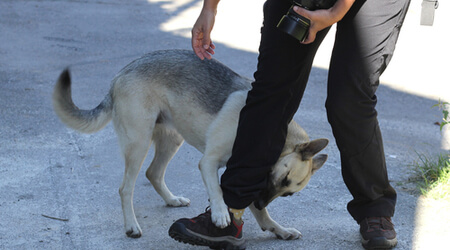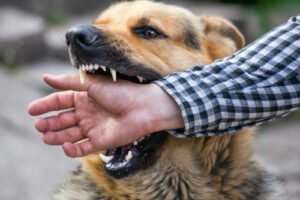
Dog attacks cause deep scars both physically and emotionally. Extensive cosmetic surgery and years of counseling may be necessary to address the psychological trauma and physical harm of a dog attack. To make matters worse, victims often find themselves stuck with costly medical bills that insurance companies unfairly refuse to cover.
If you or your loved one has been bitten by a dog and suffered serious injuries in Charleston County or a surrounding area, don’t go at it alone. A lawyer can help oversee your physical and financial recovery, so you move forward with your life.
Our Lowcountry dog bite attorneys have extensive experience representing people seriously injured by dangerous dogs. We know how to obtain compensation for the physical and emotional consequences of a dog attack.
Our Dog Bite Settlement Awards
At Joye Law Firm, we’ve supported numerous victims in getting the compensation they need to get back on their feet after an attack. Among our notable achievements was obtaining $425,000 for a dog bite victim who suffered multiple fractures on a neighbor’s property.

Attorney Brent Arant won a $300,000 pre-lawsuit settlement for a young girl in Charleston who was bitten by a Rottweiler in her front yard. This settlement covers the child’s current and future medical needs, including treatments for emotional trauma and surgeries for permanent scarring.
Joye Law Firm North Charleston Office Location
5861 Rivers Ave
North Charleston, SC 29406
(843) 508-9015
Facts and Statistics on Dog Bite Injuries
Dog bites occur a lot more frequently than many realize. Here are some statistics to underline the gravity of dog bite incidents in the U.S.:
- 6% of U.S. households own a dog, equaling 62 million.
- 5 million people are bitten by dogs every year in the U.S.
- 19% of dog bite victims require medical attention.
- 3 of 5 bite victims are bitten by a family pet or a dog in the neighborhood.
- The CDC reports that from 2011 to 2021, there were an average of 43 deaths per year due to dog attacks.
- You are five times more likely to be bitten if you live in a house with more than two dogs than if you don’t own a dog.
- In 2022, there were more than 17,597 insurance claims for dog bites, with an average payout of $64,555 each.
One study found that children were especially susceptible to dog bit injuries and that:
- Of pediatric injuries, 53.8% were male and 50% were less than 5 years of age.
- Bites occurred more frequently in June (13.3%) and July (16.5%).
- 9% of pediatric victims sustained facial injuries, and 26.6% to the scalp.
What Are the Most Common Dog Injuries in Charleston?
The most frequent injuries from dog attacks are to the face, arms, hands, legs, and feet, including:
- Puncture Wounds: These injuries occur when a dog’s sharp teeth pierce the skin, leaving a deep wound. Depending on the bite’s depth and location, these wounds can be painful, prone to infection, and may harm nerves or muscles.
- Cuts and Scrapes: If a dog bites, it can leave behind minor scrapes or deep cuts, which can bleed and later scar. Without proper care, there’s a risk that these cuts could get infected.
- Avulsion Injury: This occurs when tissue is forcefully ripped from the body, leading to blood loss, intense pain, and potentially lasting scars or disability. It might require reconstructive surgery to repair.
- Facial Wounds: Facial injuries can be incredibly distressing, frequently requiring surgery to reduce scars and regain functionality. Those affected might also suffer emotional and psychological effects due to the change in their appearance.
- Neck Wounds: These can be life-threatening due to the proximity to the airway and major blood vessels. There is a high risk of serious complications, including bleeding, infection, and damage to vital structures.
- Hand Wounds: Injuries to the hands can impair movement and functionality, affecting the victim’s ability to perform daily tasks. Rehabilitation may be needed to recover strength and dexterity.
- Psychological Trauma: Dog bite victims might experience anxiety, PTSD, a fear of animals, and other emotional problems that can impact their daily lives. They may need counseling or therapy to help them deal with these issues.




